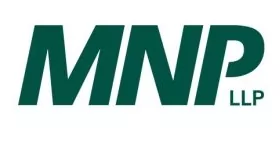Budgetary Crisis Confronting Many States, Even if the Economy Rebounds
To address a continuing budgetary crisis despite an improving economy, many states have raised taxes and ramped up their tax enforcement and collection divisions to actively pursue non-filers. In addition, enhancements to disclosure laws and advances in technology have provided state tax authorities with the necessary tools to identify entities with business activity in the state and whether they are compliant with their state filings. As a result, Canadian trucking companies with cross-border activities need to assess current and prior years' U.S. tax exposure and take the necessary steps to manage it.
The Canadian Trucking Industry and the U.S. Market
The North American Free Trade Agreement (NAFTA) continues to generate significant growth in the Canadian trucking industry. This industry is influenced by a variety of economic, technological, regulatory and international factors and is a major driver of the Canadian economy. 86% of all Canadian exports are destined for the U.S. market and of that, 70% is transported by truck. In addition, 80% of all imports from the U.S. are delivered by truck.
There are over 9,000 trucking companies in Canada and their
operations can be grouped as follows:
- Owner-operators and small fleets
- Mid-sized fleets
- Large fleets
The mid-sized fleet group is the most active and constitutes about 60% of for-hire carrier revenues while the large fleet group generates a third of all for-hire trucking revenues.
The Canada-U.S. Tax Treaty and U.S. Federal Income Taxation
Article VIII, of the Canada-U.S. Tax Treaty (the "Treaty"), provides relief from U.S. federal income taxation on the profits of a Canadian transportation company transporting either passengers or property in the U.S. The Treaty in effect overrides U.S. domestic law. A Canadian trucking company whose activities in the U.S. rise to the level of a trade or business with effectively connected income associated with that trade or business would ordinarily be subject to U.S. corporate income tax at graduated rates under U.S. domestic law.
Exemption from U.S. income taxation by virtue of the Treaty is available to a Canadian resident company as long as there is no permanent establishment attributed to the U.S. trade or business. The Treaty benefits accorded foreign trucking companies, who transport property by truck between Mexico City and Los Angeles, between San Francisco and Calgary or between Mexico City and Toronto for example, is exemption from U.S. federal income taxation. A Canadian resident company, however, would not be able to rely on the Treaty for any property transported between two points within the U.S., such as delivery between New York and Boston.
In order to claim this exemption under the Treaty, a U.S. tax return (U.S. form 1120 F) must be filed to claim a "treaty based return position disclosure" with respect to the gross revenues generated by the transportation activities in the U.S. Failure to disclose a treaty based filing position may result in a $10,000 U.S. penalty assessment and U.S. taxation of 30% on U.S. gross receipts.
The Concept of Nexus and the State's Right to Tax
Since the states are not signatories to the Treaty, there is no obligation for the individual states to grant exemption from state income taxation to foreign entities. There are, however, certain states that expressly follow the Treaty such as the state of Florida, as well as certain states that expressly do not follow the Treaty (i.e. California, New Jersey and New York).
Given the continuing budgetary crisis in many U.S. states, the taxation of foreign entities provides a revenue stream for state tax jurisdictions without the political fallout associated with increased taxation of its constituents. It is important to note that a state cannot impose an income tax unless a foreign entity has created sufficient nexus (i.e., a connection with the state). For transportation companies, a states' nexus standard is generally based on the carrier's mileage and / or pickups and deliveries within the state's borders, regardless of the carrier's home base. Once substantial nexus has been established in the state, the state has the authority to impose a tax on the company.
Enforcement
Several states have initiated campaigns to compel out-of-state trucking companies travelling on their roads to pay business taxes. One typical method is the mailing of a state nexus questionnaire to the foreign entity to force disclosure about the carrier's operations within the state. If the carrier company does not return the questionnaire, the state will engage in more aggressive actions to force compliance with the demand to provide information. Once a company has been flagged as a non-filer, many states will request that returns be prepared for the last three to six years and the tax to be paid. Typically, the state seeks to force interstate motor carriers to pay their business taxes and not only assesses them for years of back taxes, but also either imposes a minimum corporate tax or taxes gross rather than net receipts.
Voluntary Disclosure
If a company determines that nexus had been established in certain states and required tax returns for prior years are delinquent, the company may be able to participate in a voluntary disclosure program in those states, if available. There are significant benefits to be obtained by the delinquent taxpayer in the form of a limited look-back period for filing required delinquent returns and a reduction in interest and penalties assessed on the past due returns. The company should not wait to be contacted by the state.
When a truck has been stopped or a company has been contacted by a state's tax authorities, the company is considered "discovered." Discovered companies are precluded from participating in most voluntary disclosure programs and lose the benefits attributable to this program such as a limited look-back period and reductions in interest and penalties.
Aggressive States
California, New Jersey, New York, Pennsylvania and other nearby states are known for their aggressive state tax enforcement policies. The state of New Jersey revenue agents are known to confront owner-operators at weigh stations or loading docks demanding to see current New Jersey corporate tax filings and demanding payment of back taxes. A trucking company that makes even one pick-up or drop-off a year in New Jersey, for example, is considered to be doing business in the state and is subject to corporate tax. Late filing in the state of New Jersey results in a maximum penalty of 25% of the company's tax liability in addition to a late payment penalty of 5%.
In the state of New York, a trucking company that makes pick-ups or deliveries in the state is doing business in the state and as a result, is subject to the state's corporate income tax and has to file tax returns.
A trucking company defined as a corporation or foreign entity in the state of Pennsylvania is required to file a net income tax or foreign franchise tax report if its activities in the state exceed the following standards:
- The company travels more than 50,000 loaded miles and makes at least one trip with pick-ups or deliveries; or,
- The company has a Pennsylvania apportionment fraction of more than 5% and has more than 12 trips with pick-ups or deliveries in the state.
Conclusion
The transient nature of foreign trucking companies operating within a state tax jurisdiction does not preclude taxation either in the form of a franchise tax or a corporate income tax. The challenge for the business owner is to analyze their business operations in the U.S. to determine when to file a state tax return and how to file properly.
The content of this article is intended to provide a general guide to the subject matter. Specialist advice should be sought about your specific circumstances.

